Israeli Defense Forces:
17 Miraculous Israeli Military Victories
(May 2015)
IDF: Table of Contents | New Programs 2014 | Wars & Operations
The Battle of Mishmar HaEmek
On April 4th 1948, the odds were not in Israel’s favor. Outnumbered ten to three and with artillery shells raining down on them, a few hundred Jewish residents and soldiers managed to hold off about one thousand troops of the Arab Liberation Army. The Arabs had attacked the kibbutz, Mishmar Haemek, with the intent of taking it for the strategic location in between Jenin and Haifa. All hope seemed lost, yet surrender was not acceptable. Miraculously, the highly outnumbered Jewish forces managed to go on the offensive, successfully taking over the Arab villages surrounding the kibbutz. This attack led to the Arab Liberation Army’s retreat and was the last significant stand of the Arab Liberation Front in the Israeli War of Independence.
The Battle for Katamon
During the Independence War, Israeli forces reentered Katamon which was a key strategic position inJerusalem that Israel had failed to retake from the Arab forces controlling it, just two days earlier. This time, the Israeli troops quickly captured the monastery that was being used as the Arab forces' base of operations and that was the end of the fighting, or so they thought... After a few quiet hours, a fierce counter-attack began. Although they managed to hold off the Arabs, the Palmach began to run low on supplies. Additionally, they suffered countless injuries including Platoon Commander Raful Eitan who was shot in the head. They needed to retreat, but no soldier could be left behind for torture and mutilation. It was decided that those wounded who could not make it out would be put in a room rigged with explosives. Two soldiers would stay behind and detonate the explosives when the Iraqi forces reached the monastery. In the meantime, the enemy forces had also suffered many casualties and were out of Ammo. Their surrender was near, but the Israeli Forces in the monastery had no way of knowing this. The Israeli soldiers were on their way out the door, when suddenly the words “don't retreat” echoed from a radio that was thought to be broken. The Arabs retreated. The Israelis stayed and reinforcements arrived to treat the wounded. Raful, the platoon commander, survived what should have been a fatal bullet wound to the head and was back in action, half an hour later! This, along with the battle being won, was nothing short of miraculous.
The Battle of Safed
In 1948, as their sovereignty over Palestine was coming to an end, the British were handing over the strategic high points of the city to the heavily armed Arab troops. Outnumbered and outgunned, the Israeli forces struggled battling over Safed for months. In late April, an artillery piece nicknamed “The Davidka” was delivered to the Jews. Surprisingly ineffective, the most notable feature of the Davidka was the tremendous noise it produced. A rumor quickly spread through the Arab ranks that the Jews had acquired an atom bomb, and the entire Arab community left that night. With their exit, morale deteriorated among the Arab troops, and the Haganah was able to secure the city.
Taking Back Mount Zion
During the Independence War, Ira Rappaport’s Israeli platoon fought the Jordanian military for Mount Zionand found themselves surrounded by hundreds with only twenty five bullets left. With a sad end seemingly near, the men agreed to go out with a bang and readied themselves to make good use of every last bullet. Then, just when the small platoon were about to face the inevitable, something incredible happened. The Jordanian soldiers dropped their weapons and began suddenly running away, screaming “ABRAHAM!”. Several years later, Ira would come across a familiar face with an unlikely answer, as to what had actually occurred on that miraculous day. This was a former Jordanian soldier who had fought against Ira on Mount Zion. According to him, his army all witnessed a vision of Abraham defending the Jews in the sky above the Israeli platoon and had no choice, but to drop their weapons.
Saving the Kibbutz
During the War of Independence, twenty-four homemade Israeli armored trucks and cars took a wrong turn on the way to aid a besieged Kibbutz, and crossed and accidentally entered Lebanon. They realized their mistake, when they ran into twenty brand new Syrian armored cars traveling with dozens of Syrian supplies trucks carrying ammunition and artillery. The Israelis immediately fired at the first Syrian truck and amazingly hit a tank loaded with gasoline, causing an explosion, which set fire to the following truck full of hand grenades. One by one, each truck in the Syrian convoy exploded. The loud booms could be heard for miles and the scared surviving Syrians abandoned their cargo. The Israelis had just enough people to drive the captured armored vehicles and Syrian weapons back. By the time they finally reached the Kibbutz, the Arab besiegers had already left. Apparently, after they heard rumors that the Israeli forces invaded Lebanon, they fled back toSyria. And that’s how one wrong turn saved an entire kibbutz. The skeptical may write it off as accidental, but when it comes to Israel there are no accidents.
The Attack on Degania
Shortly after the Independence War, nearly all of the Syrian forces stationed at Tel al-Qasr used two hundred armored Syrian vehicles including forty-five tanks to attack Israel’s oldest kibbutzim; Degania Alef (“A”) and Degania Bet (“B”). With no artillery, about seventy Israelis (most of them were kibbutz members which means they were not regular fighters) had virtually no chance of blocking a Syrian advance, but they wouldn’t go down without a fight. When the tanks approached Degania Aleph, the minimal Israeli forces began to throw molotov cocktails and behold, an Israeli soldier made a direct hit on the first approaching Syrian tank. Suddenly, the entire Syrian column was turning around and fleeing, possibly believing that Israel had a large multitude of anti-tank weapons. When the Syrians hit Degania Bet, the Israelis were incredibly low on weapons, but quickly assembled two ancient French cannons and used them well against the Syrians’ 75 mm cannons, and 60 and 81 mm mortars. The use of Israel’s little artillery must have really taken the Syrians by great surprise. Why else would they retreat when they had Israel outgunned and outnumbered? Sometimes, the best explanation is the simplest one. Miracles really do happen.
The Preemptive Strike
In 1967, Egypt began moving large forces and heavy artillery to the Sinai desert. Next, Egypt closed the Straits of Tiran to Israeli ships and anyone bringing any military equipment to Israel. This was an act of war. WhenEgypt, Syria and Jordan formed a pact and placed their militaries on high alert for war, it became clear that conflict was inevitable. Israel had horrible odds. However, the Rebbe confidently declared, “G-d is guarding them (the people of Israel)” and “The people of Israel will emerge from the current situation with remarkable success.” And sure enough their success was more than remarkable, it was miraculous. Two hundred Israeli Air Force planes were heading towards Egyptian air bases and should have been shot down. Though flying very low to avoid being detected by Arab radar sites, a Jordanian radar facility was able to detect the unusual amount of aircrafts approaching the sea. Jordan quickly sent out the message, “Inab” (a code for war) to Egypt. Miraculously, however, the Egyptian coding frequencies were changed the very day before and Jordan was not yet updated. Still, the miracle of surprise was not enough. Egypt’s anti-aircraft ammunition was sufficient enough to destroy all the Israeli planes attacking. Miraculously, the order was not given to launch any of those missiles on the Israeli crafts. Israel accomplished her mission and took down half the Egyptian air force: two hundred and four Egyptian planes, the majority of which were in the Sinai Desert readying to attack Israel. With this battle, the Six Day War began.
The Battle of Ammunition Hill
This battle for an extremely fortified Jordanian military post in East Jerusalem was arguably the most furious battle of the Six Day War ‘67. Instead of an air strike that would ensure an israeli victory, they opted for a ground attack, using paratroopers, to minimize the risk of civilian casualties. However, the Israeli forces had incorrect intelligence suggesting the hill was being defended by a single Jordanian platoon, not accounting for the numerous underground bunkers throughout Ammunition Hill that made this battle so incredibly difficult. They sent a third of the amount they should have. This is the kind of serious mistake that should cost the military a battle and possibly the war, but not Israel. Despite their misinformation, Israel miraculously won this battle in the incredible time of just four hours! Ammunition Hill is currently a national memorial site.
Kusseima
To win the Six Day War, Israel needed to retake the Egyptians’ heavily fortified Kusseima outpost. The Egyptians were in control of powerful forces capable of a great counterattack, while the Israelis were weary from a full day of battle. As the Israeli Defence Forces drew near, they heard massive explosions. When they arrived they saw that the Egyptians had destroyed their equipment and abandoned the base, for no apparent reason! As the day continued, it became clear that the Egyptians were hastily abandoning many of their outposts and their supplies along with them. One mysterious report of the battle was from Egyptian soldiers who, when approaching the Israeli border, saw a gigantic hand come out from the sky. Immediately terrified, they turned around and ran the other way, unable to deny that they were witness to a supernatural event.
Taking Back Jerusalem
Starting June 5th, days of violent battling ensued throughout the old city of East Jerusalem. On June 7th, an eerie silence befell the city when Jordanian firing stopped. It was too quiet and so Israeli troops were dispatched to check for a trap. However, their report was of no trap, but of a miracle. The city was empty, save for all the equipment that the Jordanian army left behind. The Israeli forces entered East Jerusalem, and took the Temple Mount, reaching the Western Wall without even firing a single shot. The people of Israel had returned to the land again and again, but they never retook all of Jerusalem... not until June 8th, 1967. On this day, Israel not only had the land, but had her holiest city of Jerusalem, for the first time in almost 2000 years. “The Lord says: I will return to Zion and dwell in Jerusalem,” -Zechariah 8:3
The Golan Heights Attack
At the end of the 6 Day War, to retake the Golan Heights, Israel had to win an uphill battle against a heavily entrenched and well fortified Syrian army, consisting of seventy-five thousand troops. It was estimated that thirty thousand Israeli lives would be lost. Yet on June 9th, after just seven hours of heavy fighting, Israel had miraculously gained control of the main sectors. The next morning, the Israeli forces still expected another day of fierce fighting. The Syrians, however, had other plans. Before the Israelis even got to them, they pulled out of the Golan, fleeing frantically and leaving weapons behind. The mountains, which were once strategically used to murder Jews had fallen into the hands of the Jews. Having completed the final offensive, they signed a ceasefire.
Taking Tel Fakhr
Due to great casualties, an Israeli platoon was left with only twenty-five men. Nonetheless, what was left of the platoon continued to charge Tel Fakhr, in the Golan Heights. Little did they know, Tel Fakhr was maybe the most heavily fortified position Syria had. It had trenches, bunkers, and heavy wiring, machine guns, anti-tank guns, and mortars. Those Israeli soldiers did not stand a chance. That was until a miracle occurred. For no reason that makes any sense, a Syrian captain instructed his men not to fire on the Israelis until they reached the wiring. Before the Syrians knew it, they were too late. “The Jews are already inside, and we’ve taken heavy casualties,” they reported to their captain. Those who remained of the Israeli platoon were victorious, and continued up the Heights.The result of the miracles of this war was the recapturing of the Western Wall and much of the land Israel has today; an Israeli victory in just six days.
Yom Kippur War
In 1973, while the entire country of Israel fasted for Yom Kippur (Day of Atonement), one hundred thousand Egyptians invaded Israel from the south and over 1,400 Syrian tanks invaded Israel from the north. Although one can say that every war is a miracle, Israel surviving, let alone winning this war, is arguably more miraculous than most of her other war victories. With a significant portion of the Israeli military either in their homes or synagogues, Israel was nearly defenseless. Not only was Israel caught completely off guard and outnumbered, now the vast majority of her soldiers were at their weakest. Initially Syria was gaining territory and logic dictates that Israel should have lost this war, but by the end of the the Yom Kippur War, Israelsomehow managed to come out on top and her weakened troops managed to reach 20 kilometers into Syria!
The Valley of Tears
During the Yom Kippur War, a small impossibly outnumbered Israeli force held back a large portion of the Syrian army, for four days in the Golan Heights. The Syrians were armed with hundreds of tanks, but gave the Israeli forces a false sense of security revealing only a few of their tanks in battle formation for months before the massive attack they had planned. If this attack was successful they could have taken Israel. They had three infantry divisions and over a thousand tanks. At one point, it was said to be just three Israeli tanks against one hundred and fifty Syrian tanks. A sergeant, out of shells wanted to leave his position, but was ordered to stay put. With no ammo, he was up against impossible odds. It would take a miracle to save him; to save Israel, and that’s just what happened. The Syrians retreated, just when the Israeli force was on the verge of collapse! It has been theorized that the Syrians didn’t know the tanks were out of shells and seeing only a few tanks changing positions, they may have believed that Israel had more tanks than they actually did. However, a Syrian soldier swears an army of Angels surrounded those few tanks Israel had and considering the rate of miracles surrounding the small country of Israel, that could truly be what happened in what is now known as, the Valley of Tears.
The Gas Attack That Never Was
During the Gulf War in 1991, Iraq threatened to use chemical weapons on Israel, a country which was not actively participating in the conflict. As Iraq bombarded Israel with rockets, the country prepared for the likely possibility of a chemical attack. However, one never occurred. Why? Strangely enough, wind patterns changed from the normal directions to blow East from Israel going directly towards Iraq. The U.S. military theorized that the odd weather changes likely served as the major cause for Iraq’s decision not to employ chemical warfare, since the winds would have caused any gas attacks on Israel to harm Iraq as well.
Thirty-Nine Rockets
In 1991, without any Israeli instigation, Iraq tried to provoke Israel into retaliating by firing 39 missiles intoIsrael. Despite this, Israel did not retaliate and miraculously managed to stay out of the Gulf War, much due toU.S. encouragement. Many Iraqi scud missiles were intercepted by Patriot missiles from the U.S, but not all of them. Still, throughout all of the numerous strikes on the West Bank, there was not a single death. Two missiles disappeared. To this day, nobody has taken credit for preventing their strikes and they have never been found. Another missile struck a garbage dump and for some reason did not explode. One missile landed just several feet away from a gas station, which could have caused devastation, but incredibly it also did not explode. Multiple missiles missed Iraq’s intended targets, instead landing in the Mediterranean Sea. One of which had gotten thrown off course by some inexplicable strong winds. There were other missiles that did hit and did actually explode. One of these exploded between two buildings and completely destroyed both of them, but somehow not a single soul was lost in this strike.Not everyone realized the magnitude of this miracle until tragedy struck when over 40 were killed in a single missile strike on a U.S. marine bunker in Saudi Arabia. Even today, there are sadly parts of Israel that are being hit by terrorist rockets and while miracles do not occur for everyone, the rate of miracles for this country is undoubtedly exceptionally high.
Massacre Averted
During summer 2015, it was discovered that Hamas had been using supplies given by Israel for civil projects, to build tunnels that would enable them to transport weapons and invade Israel. In the weeks before July 17th,Hamas terrorists scouted out the area which one of their tunnels would potentially end, near the farming village of Sufa. It was perfect. At the time, this was a populated area of farmers concealed by tall wheat. Israelwouldn’t stand a chance. However, the terrorists didn’t count on the apparent power of faith. According to Jewish customs, there is a biblical mandate that requires farmers to harvest before taking a sabbatical year, in which it is forbidden to harvest in Israel. On July 17th, terrorists exited their completed tunnel only to find an empty open land. This attempted attack happen to occur just after the sabbatical year had begun and so, the religious farmers were no longer harvesting. Without the tall wheat for cover, the terrorists were quickly spotted and intercepted by the Israeli Defense Forces. A potential massacre was avoided because of this miracle. And looking at the history of Israel, it seems there are always greater miracles to come.
Israel Defense Forces:
History & Overview
IDF: Table of Contents | Wars & Operations | Chiefs-of-Staff
The Israel Defense Forces (IDF) was founded shortly after the State of Israel was established in 1948. It ranks among the most battle-tested and highly-trained armed forces in the world.
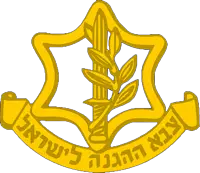 Logo of the IDF |
The IDF's security objectives are to defend the existence, territorial integrity and sovereignty of the State of Israel; deter all of Israel's enemies; and, curb all forms of terrorism which threaten daily life.Most soldiers in the IDF are Jewish, but the number of Christian recruits has been steadily climbing since 2012, when concentrated efforts to encourage their enlistment began. It is predicted that approximately 200 Christian recruits will join the IDF in 2015-2016.In October 2014 the IDF topped Business Insider Magazine's list of most powerful militaries in the Middle East, and also the list of the top air force's in the entire world. A close security relationship with the United States as well as a booming defense industry gave Israel an edge over the other countries on the list. Israel has one of the most well-tested and battle ready armies in the world (they have fought in four major engagements since 2006), and can also mobilize it's fighting forces quickly due to the relatively compact size of the country. The Israeli air force was ranked first in the entire world due to their "space assets, advanced fighter jets, high-tech armed drones, and nuclear weapons". Chris Harmer, a senior naval analyst at the Institute for the Study of War was quoted in the Business Insider article stating that "Pilot to pilot, airframe to airframe, the Israeli air force is the best in the world".
IDF Doctrine
To ensure its success, the IDF's doctrine at the strategic level is defensive, while its tactics are offensive. Given the country's lack of territorial depth, the IDF must take initiative when deemed necessary and, if attacked, to quickly transfer the battleground to the enemy's land. Though it has always been outnumbered by its enemies, the IDF maintains a qualitative advantage by deploying advanced weapons systems, many of which are developed and manufactured in Israel for its specific needs. The IDF's main resource, however, is the high caliber of its soldiers.In preparing for defense, the IDF deploys a small standing army (made up of conscripts and career personnel) with early warning capability, and a regular air force and navy. The majority of its forces are reservists, who are called up regularly for training and service and who, in time of war or crisis, are quickly mobilized into their units from all parts of the country.The IDF's three service branches (ground forces, air force and navy) function under a unified command, headed by the chief-of-staff, with the rank of lieutenant-general, who is responsible to the Minister of Defense. The chief-of-staff is appointed by the government, on recommendation of the prime minister and minister of defense, for a three-year term, which is usually extended for an additional year.Except when combat duty is involved, men and women soldiers of all ranks serve side by side as technicians, communications and intelligence specialists, combat instructors, cartographers, administrative and ordnance personnel, computer operators, doctors, lawyers and the like. The IDF is responsive to the cultural and social needs of its soldiers, providing recreational and educational activities, as well as personal support services. Recruits with incomplete educational backgrounds are given opportunities to upgrade their level of education, and career officers are encouraged to study at the IDF's expense during their service. The integration of new immigrant soldiers is facilitated through special Hebrew language instruction and other programs. Active in nation-building enterprises since its inception, the IDF also provides remedial and supplementary education to civilian populations and contributes to the absorption of newcomers among the population at large. In times of national crisis or emergency, the IDF responds immediately with appropriate action and assigns trained personnel to fill essential jobs or carry out special tasks.
Society & Service
Service in the Israel Defense Forces is a measure of involvement in the country's life. Most men and single women are inducted into the IDF at age 18, women for two years and men for three, followed by service in the reserves, men up to age 51 and single women to age 24. The IDF announced in November 2014 that starting in July 2015 male mandatory service in the IDF will be cut by 4 months, with male soldiers now serving a total of 32 months. In addition to this, the mandatory service length for female soldiers is to be extended at the same time, in an effort to promote equality. During the same meeting in which these new service requirements were approved, discussions were also held in reference to raising the salaries of enlisted soldiers.Out of respect for their community's religious commitments, Orthodox women may be exempted, although many choose to perform 1 - 2 years national service in the civilian sector. Most ultraOrthodox men are granted deferments while pursuing Torah studies, and those who serve in the IDF mainly fulfill religious functions.In March 2007, a report issued by a ministerial committee on military service found that 43 percent of female draft candidates receive exemptions. Of these, 76 percent opt out of service for religious reasons, 7 percent are overseas, 8 percent have criminal records and 2 percent are married. Only 24 percent of men who are eligible are not drafted.In essence, the society and army are one, as a broad spectrum of the population serves periodically over many years, with those in and out of uniform virtually interchangeable. Since soldiers often hold ranks not necessarily corresponding with their status in civilian life, the IDF has become a highly effective equalizer in the society and contributes greatly to integrating individuals from all walks of life. The IDF also helps new immigrants during their period of military service to acclimate to Israeli life in a framework wherein each person is undergoing the same process.Over the years, the IDF has assumed a variety of national-social functions for the society at large; providing special services for new immigrants; upgrading educational levels of adults who were denied basic education in their countries of origin; supplying teachers to development towns; assisting in disadvantaged areas and responding to emergency situations in the civilian sector.Chritstian individuals living in Israel also serve in the IDF and are actively recruited. Prime Minister Benjamin Netanyayu spoke at an IDF Christian Recruitment forum in December 2014 and said that "We are brothers, we are partners – Christians and Jews and Druze and Muslims who defend the State of Israel".
Terms of Service
Compulsory Service: All eligible men and women are drafted at age 18. Men serve for three years, women for 21 months. Deferments may be granted to qualified students at institutions of higher education. New immigrants may be deferred or serve for shorter periods of time, depending on their age and personal status on entering the country.Reserve Duty: Upon completion of compulsory service each soldier is assigned TO a reserve unit. Men up age 51 serve 39 days year period time which can be extended in times emergency. Recent policy has been reduce the burden whenever possible and reservists who have served combat UNITS may now discharged at 45.Career Military Service: Veterans of compulsory service meeting current IDF needs may sign up as career officers or NCOs. The career service constitutes the command and administrative backbone of the IDF. Graduates of officers' or pilots' schools or special military technical schools are required to sign on for periods of career service.
Foreign Volunteers
The Israel Defense Force features soldiers from over 70 countries, with over 1/4 of these recruits coming from the United States. These soldiers are known as "lone soldiers," and are placed in the same category as Israeli recruits who do not have a support network (orphans), and Israelis who'se parents are not in Israel year-round. As of Israel Independence Day 2015, there were approximately 3,484 soldiers in the IDF from different countries who had made Aaliyah. The number of foreign volunteers in the IDF increased by 330 between 2013 and 2014. Â Nefesh B’Nefesh, an Israeli organization that works with recent Israeli immigrants, hypothesized that social media is to blame for this increase in foreign volunteers, as well as the increasing European tide of anti-Semitism . Women account for 30% of the lone soldiers, serving as combat soldiers as well as paramedics and in intelligence roles.The first group of Chinese Jews to ever join the IDF suited up during Winter 2014, hailing from Kaifeng, China. Moshe Li, Gideon Fan, and Yonathan Xue, all aged 25, made aliyah to Israel in 2009 through the organization Shavei Israel. The men were originally rejected when they attempted to sign up at the IDF conscription office, but thanks to friends in high places the group of Chinese Jews were later accepted into the IDF.
Sources: Israeli Ministry of Foreign Affairs;
“IDF to cut male soldiers’ service time next year,” Times of Israel(November 11 2014); Shpigel, Noah. “Netanyahu Lauds Christians Serving in Israeli Army,” Haaretz (December 15 2014);
Ferber, Alona. “Israeli Army Cites Rise in Number of Overseas Volunteers Joining Its Ranks,” Haaretz (April 22, 2015);
Freund, Michael. “From Kaifeng to the Kotel: Chinese Jews in Jerusalem,” Jerusalem Post (August 8, 2015);
Israel Defense Forces:
Chiefs-of-Staff
IDF: Table of Contents | Wars & Operations | History & Overview
Name
|
Years
|
2011 -
| |
2007 - 2011
| |
2005 - 2007
| |
2002 - 2005
| |
1998 - 2002
| |
1995 - 1998
| |
1991 - 1995
| |
Dan Shomron
|
1987 - 1991
|
Moshe Levy
|
1983 - 1987
|
1978 - 1983
| |
Mordechai Gur
|
1974 - 1978
|
David Elazar
|
1972 - 1974
|
Chaim Bar-lev
|
1968 - 1972
|
1964 - 1968
| |
Zvi Tzur
|
1961 - 1964
|
1958 - 1961
| |
1953 - 1958
| |
Mordechai Maklef
|
1952 - 1953
|
1949 - 1952
| |
Yacov Dori
|
1948 - 1949
|
Sources: Israel Defense Forces
Israel:
Israel Defense Forces (IDF)
Israel: Table of Contents | International Relations | Peace Process
Israeli Defense Forces:
14 New Programs in 2014
The IDF: Table of Contents | Code of Ethics | The "Magen" Program
From its newest nuclear-capable submarine to vegan-considerate, leather-free boots and berets, here is a year-end list of 14 programs fielded during 2014, as translated from the official Israel Defense Forces (IDF) website:
1. Hot, healthy, low-fat meals ready to eat (MREs) supported forces for the first time in Israel's summer 2014 Operation Protective Edge in Gaza.2. INS Tanin, the fourth of six German-built, Israeli-equipped Dolphin-class submarines, arrived at its home base at Haifa on September 23.3. New manned and unmanned Israel Air Force aircraft include:
- Samson C-130J, the first of its planned fleet of Lockheed Martin-built Super Hercules airlifters, arrived here in April.
- Lavi, the first five of Israel's new 30-aircraft squadron of Alenia-Aermacchi M346 jets, arrived here last summer, along with the first of four ground-based training systems.
- Star, the Elbit Systems-built Hermes 900 unmanned aerial system (UAS), achieved operational capability in Protective Edge.
4. New protective kit for infantry includes ceramic vest, helmet, goggles and ear-shields.5. The "Ya'alom" (Diamond) Unit of IDF Combat Engineers fielded its first Foster Miller-built Talon 4 tracked ordnance disposal robot in support of Operation Protective Edge.6. The C4I Branch integrated a new layer of connectivity into its digitized network for enhanced, cross-service, inter-disciplinary command and control.7. New personnel-related norms and programs include:
- Special meals and leather-free footwear, berets and other equipment to accommodate sensitivities of vegan soldiers.
- Prohibition on use of oversized earphones.
- Permission for female soldiers to shave their heads, as is customary among male soldiers in many units.
8. Acquisition of two new, locally built tow vessels in support of air independent propulsion (AIP) Dolphin-class submarines.9. The IDF Armored Corps debuted the Hatzav multi-mission tank round in Operation Protective Edge. The M329 anti-personnel/anti-materiel round is built by Israel Military Industries and is optimized for urban warfare.10. The Israel Air Force used upgraded, US-built Patriot batteries in the world's first successful intercepts of enemy-launched unmanned aerial vehicles.11. The IDF Medical Corps provided new personal, first-aid emergency kits for use in Protective Edge.12. Israel's Homefront Command deployed a system for disseminating personalized text message warnings of incoming rocket threats.13. The IDF Armored Corps concluded a major reorganization last year, which included retiring older-model Merkava tanks and equipping its storied 7th Battalion with latest, self-protected Merkava Mk4s.14. Israel's C4I Branch fielded a new Decision Support System (DSS) during Operation Protective Edge.
Sources: Defense News
Israel Defense Forces:
Wars & Operations
IDF: Table of Contents | Infantry & Special Forces | Spirit & Ethical Code
Listed in Reverse Chronological Order
Israel Defense Forces:
Infantry Corps
IDF: Table of Contents | Air Force | Navy | Wars & Operations
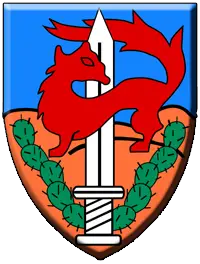 | Givati Brigade
One of the original IDF brigades, founded in 1947, Givati was disbanded in 1956 but reinstituted during the Lebanon War in 1983. Since then, Givati soldiers have taken part in all of Israel's major conflicts and have served for years on Israel's frontline with Gaza.
| Kfir Brigade
Despite being the newest IDF brigade - officially formed in 2006 - Kfir is the largest of all infantry units, comprising 6 battalions and a number of special forces. Kfir soldiers have taken the lead in the fight against Palestinian terrorism in the West Bank and Gaza.
| |
 | Golani Brigade
The IDF's most celebrated and widely known brigade, Golani was created just before Israeli independence in 1948 and has served in every war since. Golani special forces are known as one of the finest yet fiercest fighting forces in the entire world.
| Paratroopers
The paratroopers have earned a hard-won reputation for strict discipline, courage, initiative, dedication to duty and the highest standards of performance. They have consistently been at the forefront of the IDF during its wars and coflicts.
| |
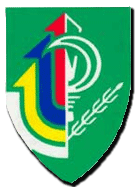 | Nachal Brigade
Originally founded in 1948 as a special military unit that would combine infantry service with civilian work on a kibbutz, Nahal matured in 1982 as a purely infantry brigade and currently is considered one of the IDF's most reliable units.
| Special Forces (Sayerote)
The Israeli Special Forces are widely heralded as some of the finest specialized fighting forces in the entire world. These crack commando units specialize in elite naval, air and ground fighting as well as combat reconnaissance both inside and outside of Israel.
| |
Israel Defense Forces:
Air Force
IDF: Table of Contents | Infantry Corps | Navy | Armored Corps
Reference
International Cooperation
Units & Branches
Combat & Operations
- Air Force Record in Battle
- Complete List of Israeli Air Victories
- War of Independence (1948)
- First Fighter Mission (1948)
- Sinai Campaign (1956)
- Six-Day War (1967)
- War of Attrition (1969)
- Yom Kippur War (1973)
- Air Raid on Syrian General Command (1973)
- The Entebbe Rescue Mission (1976)
- Raid on Iraq Nuclear Reactor (1981)
- Operation Peace for the Galilee (1982)
- Raid on PLO Headquarters in Tunis (1985)
- Rescue Operation Behind-Enemy-Lines (1986)
- Operation Solomon (1991)
- Air Force Record in Battle
- Complete List of Israeli Air Victories
- War of Independence (1948)
- First Fighter Mission (1948)
- Sinai Campaign (1956)
- Six-Day War (1967)
- War of Attrition (1969)
- Yom Kippur War (1973)
- Air Raid on Syrian General Command (1973)
- The Entebbe Rescue Mission (1976)
- Raid on Iraq Nuclear Reactor (1981)
- Operation Peace for the Galilee (1982)
- Raid on PLO Headquarters in Tunis (1985)
- Rescue Operation Behind-Enemy-Lines (1986)
- Operation Solomon (1991)
Israel Defense Forces:
Navy
IDF: Table of Contents | Infantry & Ground Corps | Air Force
ReferenceMilitary Arsenal | Major Operations
International Cooperation |
Israel Defense Forces:
Armored Corps
IDF: Table of Contents | History & Overview | Wars & Operations
The Israel Defense Forces' Armored Corps (חֵיל שִׁרְיוֹן) is one of the most storied forces in the IDF, having fought and played a decisive role in every one of Israel's major conflagrations.
The armored corps is made up of three active divisions, comprising a total of four brigades.
The 36th Armor Division, also known as the Ga'ash Formation, is the largest armored division. It is stationed on the Golan Heights under the IDF's Northern Command.
Within the 36th Division is the 7th Armor Brigade, also known as the Sa'ar (storm) Formation, which was the first armored brigade of the IDF and has participated in all of Israel's wars. The brigade’s fighting during the Suez War resulted in a breakthrough in how the army approached the character of armor warfare. The 188th Barak (lightning) Formation is also subordinate to the 36th Division. The Barak Brigade has participated in all of Israel's wars since the 1967 Six-Day War. During the Yom Kippur War, the brigade was the first line of defense in the first days of the war at the Southern Golan, and saw almost all of its officers killed in action. It was the last armor brigade to use the Centurion tank, converting to Merkava-3 tanks in 1992.
The 162nd Armor Division, also known as the Utzvat HaBarzel Formation, is subordinate to Central Command. The 401st Armor Brigade, also known as the Ikvot HaBarzel ("Tracks of Iron") Formation, is subordinate to the 162nd Division. It was created in 1968 in order to control the Suez Canal line. During theYom Kippur War, it faced the first line of attack in the canal and suffered heavy losses. During the First Lebanon War, it fought in the Southern force and one of its battalions participated in the Sultan Yaakov battle. During 2004-2005, the brigade’s Magach tanks were replaced by Merkava-4tanks.
The 366th Armor Division, also known as the Amud ha-Esh ("Pillar of Fire") Formation, is subordinate to Southern Command. It includes the 460th Armor Brigade, which is also known as the Bnei Or ("Sons of Light") Formation, and is the training brigade of the Armored Corps. It maintains two bases: Shizafon, the school for armored corps' commanders, and Magen-Sayarim, where basic and advanced training is undertaken.
Sources: Israel Defense Forces; Wikipedia
The armored corps is made up of three active divisions, comprising a total of four brigades.
The 36th Armor Division, also known as the Ga'ash Formation, is the largest armored division. It is stationed on the Golan Heights under the IDF's Northern Command.
Within the 36th Division is the 7th Armor Brigade, also known as the Sa'ar (storm) Formation, which was the first armored brigade of the IDF and has participated in all of Israel's wars. The brigade’s fighting during the Suez War resulted in a breakthrough in how the army approached the character of armor warfare. The 188th Barak (lightning) Formation is also subordinate to the 36th Division. The Barak Brigade has participated in all of Israel's wars since the 1967 Six-Day War. During the Yom Kippur War, the brigade was the first line of defense in the first days of the war at the Southern Golan, and saw almost all of its officers killed in action. It was the last armor brigade to use the Centurion tank, converting to Merkava-3 tanks in 1992.
The 162nd Armor Division, also known as the Utzvat HaBarzel Formation, is subordinate to Central Command. The 401st Armor Brigade, also known as the Ikvot HaBarzel ("Tracks of Iron") Formation, is subordinate to the 162nd Division. It was created in 1968 in order to control the Suez Canal line. During theYom Kippur War, it faced the first line of attack in the canal and suffered heavy losses. During the First Lebanon War, it fought in the Southern force and one of its battalions participated in the Sultan Yaakov battle. During 2004-2005, the brigade’s Magach tanks were replaced by Merkava-4tanks.
The 366th Armor Division, also known as the Amud ha-Esh ("Pillar of Fire") Formation, is subordinate to Southern Command. It includes the 460th Armor Brigade, which is also known as the Bnei Or ("Sons of Light") Formation, and is the training brigade of the Armored Corps. It maintains two bases: Shizafon, the school for armored corps' commanders, and Magen-Sayarim, where basic and advanced training is undertaken.
Sources: Israel Defense Forces; Wikipedia
Israel Defense Forces:
"Code of Tolerance"
IDF: Table of Contents | Code of Ethics | Wars & Operations
(1) At military swearing-in ceremonies, soldiers may pledge an oath on either the Tanakh, Bible or Koran. Jews, Muslims and Christians all serve together in the IDF with no discrimination based on religious faith.
(2) Since 1948, women have served side-by-side with male soldiers. The Equality Amendment to the Military Service Law states that “the right of women to serve in any role in the IDF is equal to the right of men.” Each year, 1,500 female combat soldiers are drafted into the IDF and 88 percent of all positions are open to women.(3) Israel is one of 24 countries that allow gay individuals to openly serve in their armed forces. Sexual orientation does not stand as a barrier to receiving promotions or joining elite units.(4) In 2001, the Women’s Affairs Advisor to the Chief of Staff was created in an effort to empower women and maximize the capabilities and opportunities of women serving in the IDF.(5) While there is a compulsory military draft for Israelis, hundreds of Jews from around the world volunteerto serve the state of Israel every year.(6) Additional vacation time is allotted to soldiers of all faiths and religious practices. For example, Bedouinand Druze soldiers are granted time off from the army to celebrate the religious holiday of Eid al-Adha with friends and family.(7) In 2011, the IDF proudly welcomed its first-ever female major general, Orna Barbivai, who was promoted as commander of the Manpower Directorate. She holds the IDF’s second-highest rank, reporting directly to Lt. Gen. Benny Gantz, IDF chief of staff.
Sources: IDF Spokesperson; Photos Courtesy of the IDF
Israel Defense Forces:
Ruach Tzahal - Code of Ethics
IDF: Table of Contents | Code of Tolerance | Wars & Operations
Ruach Tzahal (Literally, 'Spirit of the IDF') represents the values of the Israel Defense Forces and stands as the foundation for the responsibilities of Israel's army. This overarching ethical code, and the guidelines and operation resulting from it, shape the mode of action applied by all IDF soldiers and units, both in peace and at war.
During basic training, every IDF soldier studies and analyzes the code of ethics together with their commanders. It is customary for a framed copy of the code to be hung in every commanders office as a constant reminder of the IDF's values and guidelines.
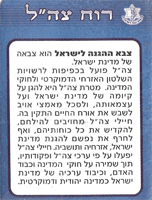 IDF Ethical Code Pamphlet given to all soldiers in basic training |
Ruach Tzahal Draws from Four Sources:
- The tradition of the IDF and its military heritage as the Israel Defense Forces.
- The tradition of the State of Israel, its democratic principles, laws and institutions.
- The tradition of the Jewish People throughout their history.
- Universal moral values based on the value and dignity of human life.
From These Sources Come Three Fundamental Values:
(1) Defense of the State, its Citizens and ResidentsThe purpose of the IDF is to protect the existence of the state of Israel, its independence, and the security of its citizens and residents.(2) Patriotism and Loyalty to the StateService in the IDF is based on patriotism, commitment and devotion to the democratic State of Israel and to its citizens and residents.(3) Human DignityThe IDF and its soldiers are obligated to preserve human dignity. All humans are to be valued, regardless of race, creed, nationality, gender, status or role
From These Fundamental Values Come Ten Additional Values:
(1) Human LifeThe IDF serviceman will, above all, preserve human life, in the recognition of its supreme value and will place himself or others at risk solely to the extent required to carry out his mission.The sanctity of life in the eyes of the IDF servicemen will find expression in all of their actions, in deliberate and meticulous planning, in safe and intelligent training and in proper execution of their mission. In evaluating the risk to self and others, they will use the appropriate standards and will exercise constant care to limit injury to life to the extent required to accomplish the mission.(2) Purity of ArmsThe IDF serviceman will use force of arms only for the purpose of subduing the enemy to the necessary extent and will limit his use of force so as to prevent unnecessary harm to human life and limb, dignity and property.The IDF servicemen's purity of arms is their self-control in use of armed force. They will use their arms only for the purpose of achieving their mission, without inflicting unnecessary injury to human life or limb; dignity or property, of both soldiers and civilians, with special consideration for the defenseless, whether in wartime, or during routine security operations, or in the absence of combat, or times of peace.(3) Personal ExampleThe IDF serviceman will comport himself as is required of him and will, himself, act as he demands of others, thoughtfully and dedicatedly, aware of his ability and responsibility to serve as a role model to those around him.The personal example of the IDF servicemen is their acting as is demanded of them and as they themselves demand of others, their clear and convincing readiness to serve as an example to those around them, in their actions and comportment, to create, uphold and foster mutual identification and joint responsibility in properly carrying out their tasks and accomplishing their missions in all areas of military activity.(4) ResponsibilityThe IDF serviceman will see himself as an active participant in the defense of his country and its citizens. He will carry out his duties decisively, resolutely and with vigor, within the limits of his authority.The responsibility of IDF servicemen is their active partnership and their readiness to use their utmost abilities in the defense of the State, its sovereignty, and the lives and safety of its citizens, within the framework of authority granted them by the IDF. They will carry out their duties fully, diligently, and with determination, commitment and initiative, in clear awareness that they are answerable for any consequences.(5) ComradeshipThe IDF serviceman will always go to the aid of his comrades when they need his help or depend on him, despite any danger or difficulty, even to the point of risking his life.The fellowship of IDF servicemen is their bond as comrades in arms. It is their unwavering commitment to each other, their readiness to extend appropriate assistance, to go to the aid of a comrade, and even risk their lives on his behalf. In all their actions they will uphold and strengthen the solidarity of their unit in full cooperation with other units, and in support of the overall goals of the IDF.(6) ProfessionalismThe IDF serviceman will aspire to be familiar with and understand the body of knowledge pertaining to his military position and will master every skill necessary for carrying out his duties.The professionalism of IDF servicemen is their ability to correctly perform their military duties through striving to constantly excel in and improve their unit's and their individual achievements. They will do so by broadening their knowledge, and increasing proficiency, based upon the lessons of experience and study of the heritage and by expanding and deepening their understanding of the body of military knowledge.(7) DisciplineThe IDF serviceman will execute completely and successfully all that is required of him according to the letter and spirit of his orders and within the framework of the law.The discipline of IDF servicemen is their readiness to act to the full extent of their abilities, to carry out what is demanded of them completely, according to their understanding of the letter of the orders they have received, and successfully, according to the spirit of their orders. It is their readiness to obey orders amidst a constant striving to execute them with understanding and dedication. They will take care to issue only legal orders, and disavow manifestly illegal orders.(8) Loyalty and RepresentativenessThe IDF serviceman will act with complete dedication in the defense of the State of Israel and its citizens, according to IDF orders, within the framework of the laws of the State and democratic principles.The IDF serviceman will also constantly see himself as a representative and an emissary of the IDF. As such he will act solely on the basis of the authority he has been given and orders he has been issued.The loyalty of IDF servicemen is their dedication, in all actions, to their homeland, the State of Israel, its citizens and armed forces, and their constant readiness to fight and devote all their power, even at the risk of their own lives, in the defense of the sovereign State of Israel and the lives and the safety of its inhabitants, according to the values and orders of the IDF, while following the laws and the democratic principles of the State.The representativeness of IDF servicemen is their consciousness, expressed in all their actions, that the armed force placed in their hands and the power to use it are given to them only as members of the IDF and its authorized representatives, duly executing their orders in accordance with the laws of the State of Israel and is subject to its Government.(9) Reliability and TrustworthinessThe IDF serviceman will strive in all his actions to fulfill his duties correctly and at the highest professional level, from exacting and thorough preparation to true, honest, complete and precise reporting.The trustworthiness of IDF servicemen is their reliability in fully carrying out their charge, using their military skills, with the sincere belief and conviction that they are acting professionally. They are ready at all times to present things as they are, in planning, executing and reporting truthfully, completely, courageously and honestly.(10) Perseverance in Mission and Dedication to the Pursuit of VictoryThe IDF serviceman will fight and conduct himself with courage in the face of all dangers and obstacles; he will persevere in his mission courageously, resolutely and thoughtfully even to the point of endangering his own life.The perseverance of IDF servicemen in their mission is their capability and readiness to fight courageously in the face of danger and in most challenging situations; to strive unremittingly to achieve the military goal effectively, with full regard for the particular circumstances, notwithstanding any difficulty, stress or adversity or even mortal danger. They will do so with proper judgment and with due regard for risks.
Basic Principles
1. The IDF serviceman will, in all his actions and conduct, express the basic values of the IDF:Perseverance in the mission, comradeship, discipline, respect for human life, loyalty, personal example, professionalism, purity of arms, representativeness, responsibility, and trustworthiness, as defined above and as appropriate to the specific circumstances.2. The IDF serviceman, when acting in the framework of his military role, will be ever cognizant that he bears responsibility not only for the outcomes of his acts and omissions, but also for the patterns of behavior which they help to create, whether by order or personal example, by direct or indirect influence, whether intentionally or unintentionally.3. The IDF serviceman will view himself, in each of his actions, as bearing full responsibility for the lives and safety of the servicemen and all others who are dependent on his actions or decisions.4. The IDF serviceman will be ready to place his own life at risk when confronting the enemy or to save human life to the extent required, but he will preserve his own life and that of others in all other military situations.5. The IDF serviceman will take into account, in every practical context, not only the proper concern for human life, but also the influence his actions may have on the physical well-being and spiritual integrity and dignity of others.10. The IDF serviceman will maintain the tradition of the IDF, will study the IDF's military heritage and will promote esprit de corps.
11. The IDF serviceman will carry out his military activities without obtruding his personal views in matters beyond his sphere of responsibility, authority and professional expertise. He will take special care not to inject his personal opinions on issues subject to public controversy of a political, social or ideological nature.12. The IDF serviceman will make use of his military authority or status, whether command or professional, solely for the benefit of the IDF. He will never use his military authority or status improperly to advance a personal objective, or to go beyond the limits of his authority and responsibility, in letter or spirit, within or without the IDF.13. The IDF serviceman will hold himself responsible for the outcomes of his orders. He will support those who have acted in accordance with those orders or as is proper, and will view himself as responsible for the patterns of behavior which he imposed.14. The IDF serviceman will support his unit and its commanders in every way necessary to fulfill the unit's mission of building, promoting and employing military force. The serviceman will obey his commanders in accordance with the law and maintain respect for his commanders, peers and subordinates.15. The IDF servicemen will never conspire to conceal any offense or mishap, and will not entertain any proposal to be party to such a conspiracy. When confronted with an offense or mishap, the serviceman will act as is reasonable and proper to correct the aberration.16. The IDF serviceman who participates in a discussion or dispute dealing with an activity in which the IDF is involved, whether before, during or after its implementation, will express his views in accordance with his professional knowledge and conviction, with honesty, candor and courage.17. The IDF serviceman will use the authority at his disposal towards others only as is fair, self-controlled, reasonable and professional. He will show due respect for the person and the privacy of those with whom he interacts.18. The IDF serviceman will view his appearance in an IDF uniform as an expression of his loyalty to the values and basic principles of the IDF.19. The IDF serviceman will use the force at his disposal, in all actr to correct the aberration.16. The IDF serviceman who participates in a discussion or dispute dealing with an activity in which the IDF is involved, whether before, during or after its implementation, will express his views in accordance with his professional knowledge and conviction, with honesty, candor and courage.17. The IDF serviceman will use the authority at his disposal towards others only as is fair, self-controlled, reasonable and professional. He will show due respect for the person and the privacy of those with whom he interacts.18. The IDF serviceman will view his appearance in an IDF uniform as an expression of his loyalty to the values and basic principles of the IDF.19. The IDF serviceman will use the force at his disposal, in all actions in the face of the enemy, manifesting perseverance in his mission, courage and judgment, always ready to carry out his duties despite danger to his life.20. The IDF serviceman will be ready to do whatever is required, and even to endanger his own life, to come to the aid of his comrades or to recover wounded comrades from the battlefield.21. The IDF serviceman will act, when confronting the enemy, according to the letter and spirit of the laws of war. He will adhere strictly to the principle of purity of arms and to the ethics of combat.22. The IDF serviceman will treat enemy troops and civilians in areas controlled by the IDF in accordance with the letter and spirit of the laws of war and will not exceed the limits of his authority.23. The IDF serviceman will act fairly with self-control, reasonably, and professionally, in carrying out the responsibilities of his position, in all his contacts with civilians in areas controlled by the IDF, whether in the course of battle or afterward. He will show respect towards the beliefs, values, sacred and historical sites of all civilians and military personnel as they deem proper and to the extent possible, in keeping with the values and basic principles of the IDF and in accordance with military needs and the given circumstances.24. The IDF serviceman will fight and exert himself to the utmost, even placing his life at risk so as not to surrender to the enemy but to overcome him. He will not surrender as long as he has a chance of carrying out his mission. Even in the absence of such a possibility, he will not surrender as long as he has contact with his commander or the ability to extricate himself from his compromised position.25. The IDF serviceman who, despite all efforts, has been taken prisoner will act according to IDF orders; responsibly, reasonably and honorably.26. The IDF serviceman will give preference to promoting the IDF's goals, as is required of him, in accordance with regulations, orders, values and basic principles, over the advancement of the goals of any civilian body, in any instance of conflict of interests between the IDF's goals and those of that body.27. The IDF serviceman, in all official contact with civilian bodies, will act professionally and without compromising the IDF's values, basic principles or honor.28. The IDF serviceman may be involved in the activities of a commercial or civilian body only in accordance with the letter and spirit of existing orders and procedures, and within the limits of his position.29. The IDF serviceman will refrain from receiving personal benefits as a result of his position, rank, status or actions. He will not request, nor will he agree to accept any favors from any agent, inside or outside the IDF, directly or indirectly, for himself or others, except in accordance with due orders and procedures.30. The IDF serviceman will ensure that every public appearance, especially in the mass media, has prior approval, expresses outright and unreserved loyalty to the value and basic principles of the IDF, reflects the IDF's policies and decisions, and contributes to the public's confidence in the IDF.31. The IDF serviceman will ensure that his behavior even in private circumstances cannot be interpreted as compromising the IDF's values or basic principles, does not detract from the public's confidence in the IDF, and will not contribute to the creation of patters and behavior that could harm the implementation of the IDF's values and basic principles.32. The IDF serviceman, during his reserve duty, will act according to the same values and basic principles of the IDF as those that apply to servicemen in regular service.33. The discharged serviceman may make private use of special or sensitive information which he gained or which came to his attention during his service only after he has received the proper authorization to make commercial media or other such use of such knowledge outside of the IDF framework.34. The discharged serviceman may make use of his military status, including his reserve or retired rank, or may grant permission to others to do so, only in civilian contexts that do not compromise the IDF's values and basic principles, or its honor and the trust which it enjoys in the public mind.
Sources:IDF Spokesperson, Israel Defense Forces
123456789

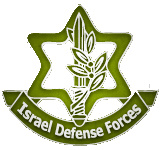
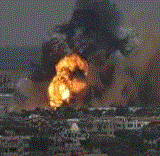
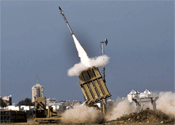
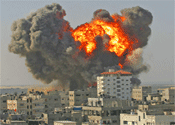
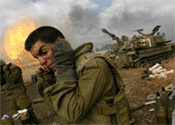
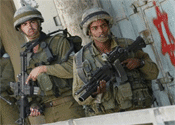
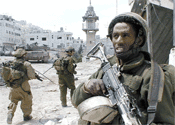
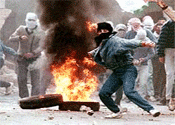
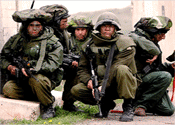
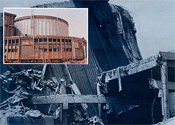
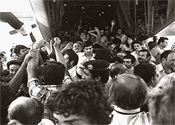
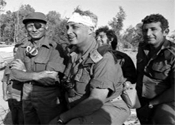
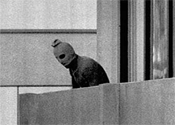

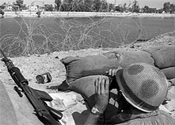
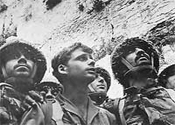
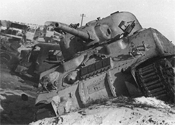
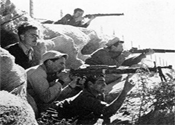
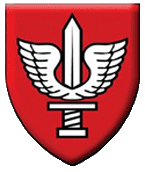
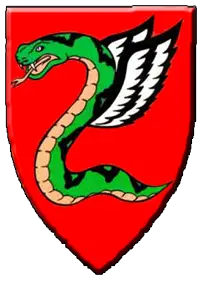
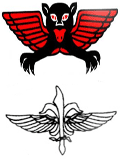
No comments:
Post a Comment